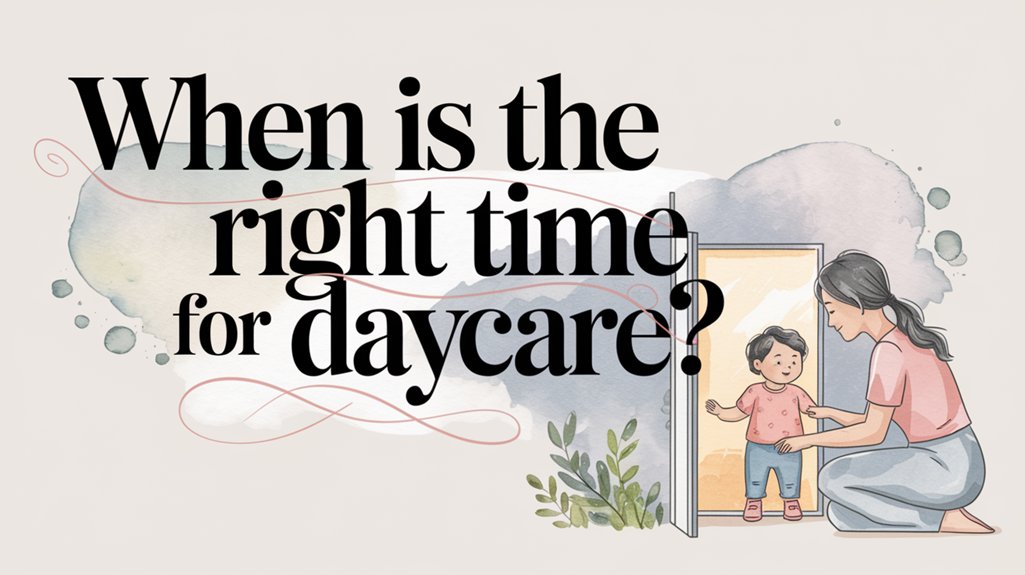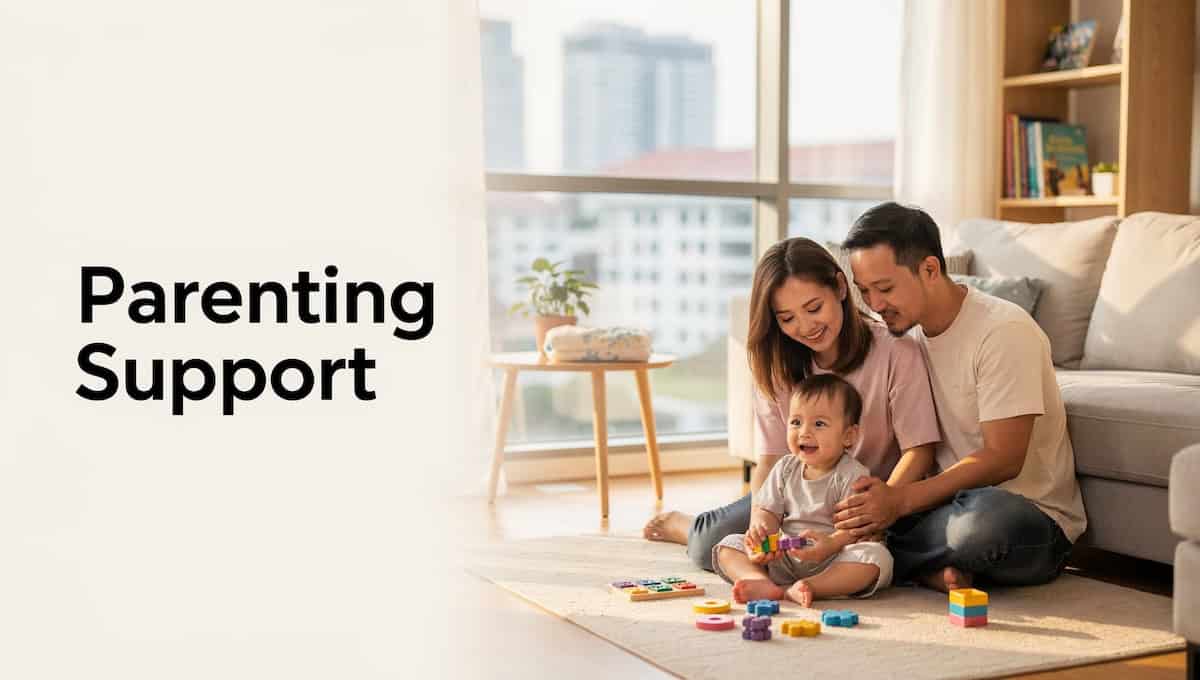Starting your child in daycare is a decision that weighs heavy on many parents’ hearts. The question of timing can be particularly challenging when you have other childcare options available. This article explores the considerations around choosing between a nanny and daycare and offers guidance for families navigating this decision in Singapore.
A Parent’s Concern
I’m a first-time mother to a 7-month-old boy. My husband and I both work from home with demanding jobs and frequent meetings. Currently, we have a nanny who cares for our son at home four days a week, organizing activities and maintaining our household. My parents help out by watching him one day a week.
My husband wants to enroll our son in daycare when he turns 2 years old. He believes it will help with socialization and accelerate his learning and development. While I understand these benefits, I feel heartbroken at the thought of dropping him off at a daycare center. My son is very attached to me since I’m breastfeeding, and I cherish every moment I can spend with him.
I’d prefer to wait until he’s around 4 years old or send him directly to preschool later. I worry about him getting sick frequently at daycare (which might make me ill too), and we’d still need to pay the fees even during absences. I believe we can support his learning at home with our nanny, arrange playdates with family friends’ children, and register him for enrichment classes if needed.
Am I being selfish or hindering my son’s development by preferring to keep him at home with a nanny longer?
Our Parenting Guidance
This is a common dilemma faced by many Singapore parents who must choose between nanny care and daycare. The good news? There’s no single “right” answer that works for every family.
Understanding Early Childhood Development Needs
Children under three years old typically engage in parallel play rather than interactive play with peers. At this stage, they learn primarily through consistent, responsive caregiving relationships—which can happen successfully with a nanny or in quality daycare settings.
Research suggests that the critical period for peer socialization begins around 3-4 years old. Before this age, children benefit most from secure attachments with caregivers and exposure to varied experiences, rather than peer interactions.
For Singapore families, having a dedicated nanny provides excellent developmental opportunities when complemented with occasional social activities outside the home.
Making the Most of Nanny Care
If you choose to keep your child at home longer with a nanny, here are ways to maximize developmental benefits:
- Structured playgroups: Singapore has many parent-child playgroups and drop-in sessions at community centers where your nanny can take your child weekly for controlled social exposure.
- Library programs: The National Library Board runs regular storytelling sessions for different age groups, providing both language exposure and opportunities to be around other children.
- Parent-accompanied classes: Consider weekend parent-accompanied classes like swimming, music, or movement classes at centers like Gymnademics or Kindermusik, which offer valuable learning experiences without full-day separation.
- Outdoor play: Regular trips to neighborhood playgrounds during less crowded times can provide both physical development and casual social interactions with other children.
Practical Considerations for Singapore Families
When deciding between a nanny and daycare, consider these Singapore-specific factors:
- Health considerations: Singapore’s daycare centers typically have strict health protocols, but young children do experience more illnesses during their first year in group care settings. With a nanny, your child may have fewer illnesses but less exposure to building immunity.
- Daycare waitlists: Many quality daycare centers in Singapore have waitlists. If you’re considering transitioning from a nanny to daycare at age 4+, it’s worth registering interest early at your preferred centers.
- Part-time options: Some centers offer 2-3 day enrollment options, which can be a gentle transition that maintains your nanny arrangement part-time while adding social benefits.
- Financial planning: Compare the costs of your nanny versus part-time or full-time daycare, keeping in mind that preschool subsidies may apply depending on your household income, while nanny salaries in Singapore typically range from $700-$1,200 monthly plus levy.
Finding Middle Ground with Your Spouse
When parents have different perspectives on childcare, finding compromise is key:
- Schedule center visits together: Visit several daycare centers with your husband to see the environments firsthand and discuss how they compare to your nanny arrangement.
- Consider a gradual approach: Perhaps begin with a once-weekly playgroup program at 2 years while maintaining your nanny, then gradually increase structured social activities before committing to full-time daycare.
- Focus on your specific child: Some children thrive with the stimulation of many peers, while others do better with the personalized care a nanny provides. Observe your child’s temperament and discuss what environment might suit him best.
- Revisit the conversation regularly: Agree to reassess at certain milestones (perhaps at 24 months, 30 months, and 36 months) to see if your perspectives on nanny care versus daycare have changed.
A Few Kind Reminders
Your desire to keep your child with a nanny during these early years isn’t selfish—it’s a natural parenting instinct. At the same time, your husband’s interest in providing social experiences shows his commitment to your child’s development.
Remember that in Singapore’s educational context, all children eventually enter the same system, and research shows that by primary school age, the differences between children who had nannies versus those who attended daycare typically even out.
What matters most is that your child has responsive, loving care—whether that comes from a nanny, family members, or childcare educators. Trust your instincts while remaining open to adjusting your approach as your child grows and your family’s needs evolve.
There’s no perfect solution, only the right choice for your unique family at this specific time. Be gentle with yourself as you navigate this decision together.








